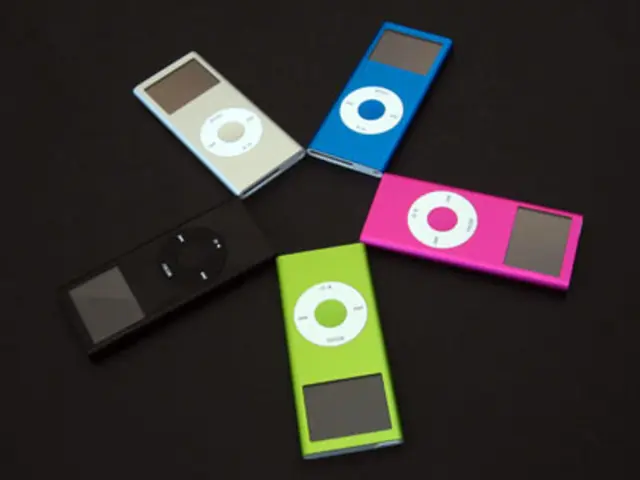Ditching the Dial: Why Germans Are Dividing Their Phones from Calling
Smartphone usage for calls dwindles significantly. - Smartphone usage is on a steady decline for traditional calling functions.
Germans are steering clear of traditional phone calls on their mobile devices. Back in 2021, German phone lines saw a whopping 163 billion minutes of outgoing phone calls, but that dropped to 145 billion by 2024, as reported by the Federal Network Agency in response to a dpa inquiry.
The downward spiral starts even earlier in the fixed-line network, which had a jarring 57 billion minutes of calls by 2024, plunging from the 104 billion it maintained in 2020. It's like watching a Blockbuster video rental store roll downhill, fading into memory.
Whereas the traditional phone call felt like the cornerstone of modern connectivity, messenger services, such as WhatsApp, Signal, and Threema, are climbing the ranks. In the year 2022, there were 197 billion audio call minutes logged, surging from the 121 billion the previous year. And that's just the tip of the iceberg, with video calls rising like a phoenix, from 143 billion in 2022 to 184 billion in 2024.
Chat messages, those handy instant messages - be they plain texts, photos, voice recordings, or emoticons - are fast becoming the new normal in daily communication, knocking formal calls off their pedestal. In 2023 alone, a staggering 902 billion of these chat messages zipped around Germany, a rise of 11 billion from the previous year.
- Smartphone
- Mobile phone
- Germany
- Bonn
- Federal Network Agency
- Texting
- Instant Messages
- Signal
- Threema
A Different Age for Phones
The decline in traditional voice calls on mobile phones in Germany can be pinned down to several reasons.
- Messaging Apps: People are gravitating towards messaging apps, finding that they offer a world of features beyond simple voice calls. Think text messaging, file sharing, and multimedia communication.
- VoIP Services: Integrated VoIP services help users make voice and video calls over the internet. Bye-bye, traditional plans!
- Privacy Concerns: With privacy protection on people's minds, secure messaging apps, such as Signal and Threema, are hitting the sweet spot.
The Rise of Messenger Services: Its Key Contenders
WhatsApp's global popularity is unrivaled, with over 2 billion users worldwide[3]. It boasts a dizzying array of features, including text messaging, voice and video calls, and media sharing[3]. However, despite its massive user base, criticism about its data collection practices and the introduction of AI features without user consent has some users scrambling for alternatives[4].
Signal
The focus on security and privacy draws many to Signal. It's known for rock-solid end-to-end encryption and a bodyguard mentality towards user data[2]. And being open source, its code is as transparent as a crystal ball, allowing users and developers to give it the once over to ensure security[2].
Threema
Threema is another secure messaging app gaining traction, due to its staunch commitment to privacy and security. It's end-to-end encrypted, GDPR compliant, and supports encrypted voice and video calls, making it a formidable choice for secure communication[1]. It's also gaining popularity among individuals and companies seeking alternative methods for keeping their communication under wraps[1]. Privacy, it seems, is the new essential accessory for smartphones.
- In the shifting landscape of communication in Germany, an increased focus on messaging apps such as WhatsApp, Signal, and Threema for vocational training purposes could be a promising opportunity to integrate these technologies into community policy for fostering digital skills.
- As the demand for secure and private messaging platforms grows, smartphone manufacturers might consider partnering with app developers like Signal and Threema to offer more advanced encryption features, as technology evolves and options for vocational training in this field become increasingly relevant.








